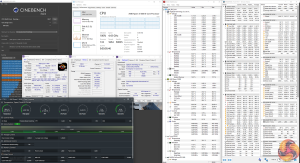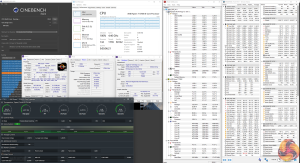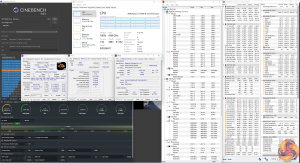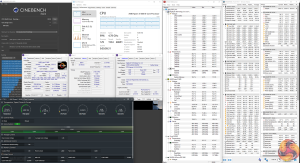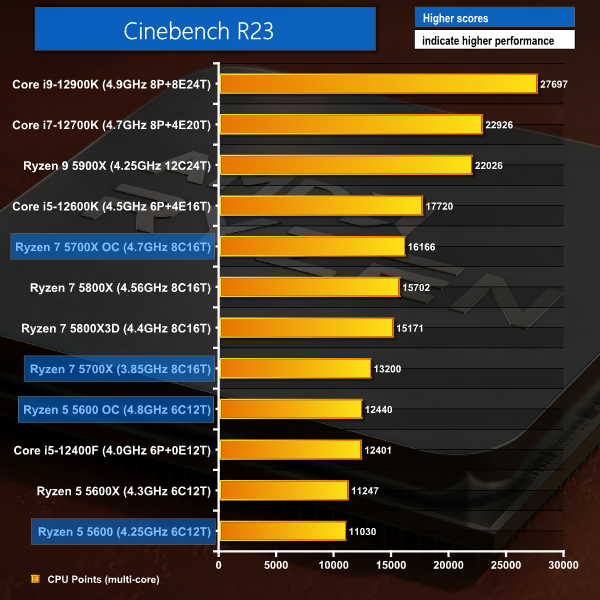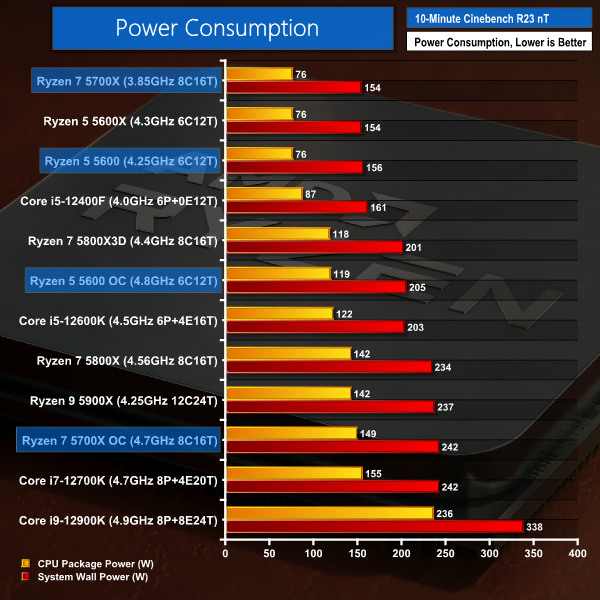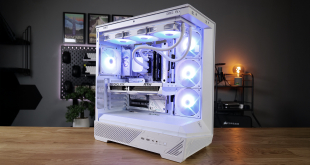Precision Boost Overdrive (PBO)
With clear headroom available by unlocking the 65W TDP-induced power shackles, we try our hand at Precision Boost Overdrive overclocking.
The Ryzen 5 5600 jumped to 4444MHz under all-core loading and drew around 89W of package power for a 59C temperature. The Ryzen 7 5700X increased to around 4475MHz and 123W package power for a 71C temperature reading, and while this still didn’t close the gap to the 4.56GHz 142W Ryzen 7 5800X, it went some way to doing so.
Manual Overclocking
As with all Ryzen processors – except the new Ryzen 7 5800X3D – manual overclocking via multiplier adjustment is supported.
We managed to push the Ryzen 7 5700X to 4.7GHz using 1.35V and High LLC in our Gigabyte motherboard’s UEFI. This is exactly the same frequency limit as our early Ryzen 7 5800X sample managed.
The Ryzen 5 5600 could be pushed to 4.8GHz using the same 1.35V and High LLC. Once again, this is the same frequency that our early Ryzen 5 5600X sample managed.
In essence, the new, cheaper processors can be overclocked to the same levels as the older, more expensive chips, based on our results. That’s certainly wallet friendly!
The 4.8GHz Ryzen 5 5600 now outperforms the Core i5-12400F in Cinebench R23 nT. That’s actually a strong result, particularly as the multiplier-locked Intel chip cannot itself be overclocked as a counter-punch.
The 4.7GHz Ryzen 7 5700X is still well behind the performance offered by the stock-clocked Core i5-12600K, though. That £270 12600K with its mix of P-cores and E-cores really is an outstanding proposition, especially as it can also be overclocked.
When overclocked, the package power levels of both the Ryzen 7 and Ryzen 5 jump by considerable amounts.
They’re now well ahead of the power numbers of the Intel stock-clocked competitors. But that is to be expected from manual overclocking. As are the temperature levels of mid-to-high 70s for the 4.8GHz Ryzen 5 and low-to-mid 80s for the 4.7GHz Ryzen 7.
 KitGuru KitGuru.net – Tech News | Hardware News | Hardware Reviews | IOS | Mobile | Gaming | Graphics Cards
KitGuru KitGuru.net – Tech News | Hardware News | Hardware Reviews | IOS | Mobile | Gaming | Graphics Cards


